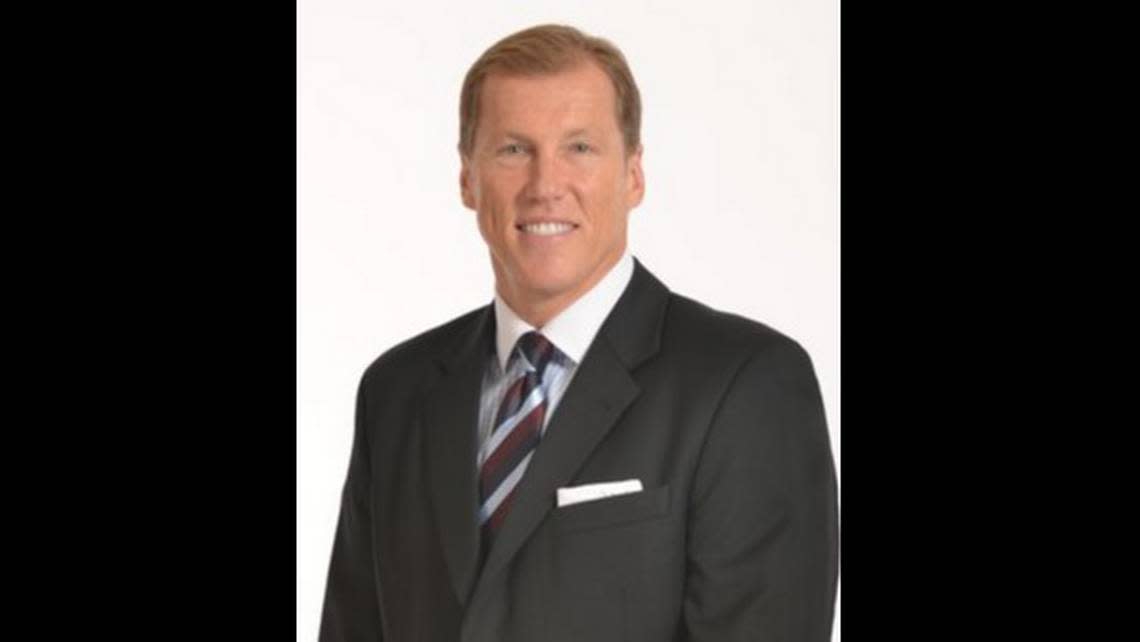He quit under fire from board to aid kids with brain injuries. Now he’s on Florida insurance board
Last year, after a searing Miami Herald investigation of a Florida program created to provide healthcare for children who suffered catastrophic brain injuries at birth, Charlie Lydecker resigned under fire as board chairman of the Birth-Related Neurological Injury Compensation Association.
Few expressed regret at seeing Lydecker — and his colleagues on the board and the executive director — depart as part of a sweeping makeover. Those who considered the changes appropriate included Florida’s Chief Financial Officer Jimmy Patronis, who said bluntly: “NICA has got to do better.”
Lydecker is back, only now he is on the board of another state-created organization, the Citizens Property Insurance Board of Governors. It is the windstorm insurer of last resort for Floridians.
The man who appointed him: CFO Jimmy Patronis, to whom he has close ties.
Lydecker, a Daytona Beach insurance executive with significant political clout in Florida, resigned from NICA’s governing board in July 2021.

The reforms were prompted by a series of stories, called Birth & Betrayal, detailing how the program had amassed $1.7 billion in assets even as the parents of profoundly disabled children had to fight for wheelchairs, nursing care, therapy and even medication.
NICA was created by the Legislature in 1988. It was intended to reduce financial pressures on obstetricians by protecting them from enormous verdicts and settlements when deliveries go catastrophically wrong, often as a result of malpractice. Families that meet the program’s criteria — children must have sustained a severe birth injury as the result of oxygen deprivation or spinal damage — can be barred from civil litigation and be forced to accept NICA compensation.
But in the ensuing years, parents complained that they were deprived of much-needed care while insiders — such as lawyers, publicists and financial advisors — profited. Indeed, NICA had spent more money on professional fees than it had on care and services for disabled children.
Lydecker’s departure came amid a nearly complete overhaul of NICA. Every member of the program’s board resigned, as did Kenney Shipley, the 20-year executive director. Parents of children forced into the program had accused Shipley and the board of hoarding cash and protecting insurers while they suffered.
Hours after the Herald’s series began, the state’s chief financial officer, Patronis, who oversees NICA, issued his statement that was a harbinger of the overhaul.
“We need to make sure these kids and their families aren’t being nickel-and-dimed,” Patronis wrote. “This program needs to treat these children with kindness instead of treating them as though they’re a liability for shareholders.
“We can and will do better.”
And in a statement to the Herald in November 2021, Patronis’ spokesman, Frank Collins, credited Patronis with securing a “completely revamped” board with “an empathetic Chair” — suggesting the prior board may have lacked that quality. He added: “The board has a new interim CEO that’s got experience in fixing broken organizations.”
Since the departures of the previous NICA board of directors and Shipley, parents have commended the program’s new leaders, crediting them with making it much easier to access care. Parents have said at board meetings that they now are being treated with the kindness and respect that long had been lacking.
Lydecker’s term on the Citizens Property Insurance Board of Governors began this month. He is the chairman and CEO of Foundation Risk Partners in Daytona Beach, and he also sits on the state university system’s board of governors. Lydecker did not respond to requests for comment from the Miami Herald.

Lydecker has contributed heavily to candidates, parties and political action committees. Not counting money given by his company or other executives, Lydecker has contributed nearly $200,000 since 1996. He gave a total of $85,000 to the Friends of Ron DeSantis PAC in 2018, 2019 and 2021, and another $3,000 directly to DeSantis in 2018. He gave a combined $30,000 to the Friends of [Attorney General] Ashley Moody PAC in 2021 and 2022. He gave a total of $4,000 to Patronis in 2018 and 2021, and another $25,000 to a PAC associated with Patronis, Treasure Florida, in 2021.
He’s contributed to Democrats, as well, including $10,000 to Gwen Graham’s unsuccessful primary campaign for governor in 2018.
When asked whether Lydecker’s appointment to the Citizens board was related to his generosity in the political arena, Collins, Patronis’ spokesman, responded: “Absolutely not.”
Michelle Perez, whose 3-year-old son, Jace, is enrolled in the NICA program, said the boy was given a new wheelchair by the current administrative team, and that “it didn’t take a year” to get it. The remark was a jab at prior leaders, who, according to parents, often required them to jump through numerous hoops and wait indefinitely for medical equipment or services.
Jace suffered permanent neurological damage at birth and he cannot walk or talk. He also suffered cognitive impairments, though his mother said it is unclear how severe.
“My stomach turned,” she said, when she learned that Patronis had appointed Lydecker to another governing board — one that affects almost a million Floridians.
“Charlie Lydecker should not be appointed to any position in a public office,” Perez said. “He did not respect the families at NICA. How can you believe he respects others,” Perez added, noting that Citizens lists respect and “responsiveness” among its corporate values.
Through his spokesman, Collins, Patronis said Lydecker was the right choice to serve on the Citizens board.
“Mr. Lydecker has spent his entire professional career in the property casualty market. It’s a fact that not only is Mr. Lydecker an expert in the property casualty space, but he is also an employer who is responsible for ensuring he can pay his employees, so that they can feed their families and pay the bills,” Collins wrote in a short statement to the Herald.
Collins also praised the Citizens board for helping establish a so-called “cut-through arrangement that keeps tens of thousands of policyholders from losing their policies in storm season.” Such an agreement can protect policyholders when an insurer becomes insolvent, such as following a catastrophic hurricane or flood.
The Legislature created Citizens in 2002 to act as the insurer of last resort for Floridians who could not buy homeowners’ insurance in the private market. Citizens has expanded its coverage greatly in recent years as several domestic insurers have either left the state or gone into receivership.
Florida property insurance rates have risen far faster than inflation despite the last three hurricane seasons being relatively quiet. Still, the “net underwriting losses” for Florida domestic property companies exceeded $1 billion in both 2020 and 2021, according to the Insurance Information Institute.
Barry Gilway, Citizens president, CEO and executive director, attributed the rising rates to “a litigation system that is truly, absolutely out of control.”
Lawmakers attempted to strengthen the industry in May by holding a special session to address rising premiums and fleeing companies. They created and funded a $2 billion reinsurance program that would protect Floridians by ensuring claims are paid even if private carriers go insolvent.
Meanwhile, the average payments for homeowners and condo owners in Miami-Dade and Monroe counties are the highest in the state. The average premium for a homeowner in Miami-Dade is $5,093; the average in Monroe is $6,729, according to a July report by the Office of Insurance Regulation, or OIR.
Insurance costs for Florida policyholders now are triple the national average, having more than doubled during the current administration from a statewide average premium of $1,988 in 2019 to $4,231 this year.
The insurance market remains extremely fragile. From Jan. 1 through June 30 of this year, OIR has referred 27 insurers to the program’s “stability unit” for “enhanced” scrutiny. Among those, 14 referrals were based on a carrier’s request for a rate increase greater than 15%; another 10 referrals were prompted by an insurer’s decision to dump more than 10,000 residential policies, the OIR report said.
In appointing him to the Citizens board, Patronis called Lydecker “a consummate insurance professional with more than three decades of experience” in property and casualty insurance.”
He added: “As a business owner himself, I know [Lydecker] will bring the utmost professionalism and work ethic to the Citizens Board. We all know the unique challenges Florida’s hardening insurance market is facing, and I believe Charlie will help the board navigate those issues, including fighting fraud and protecting policyholders.”
